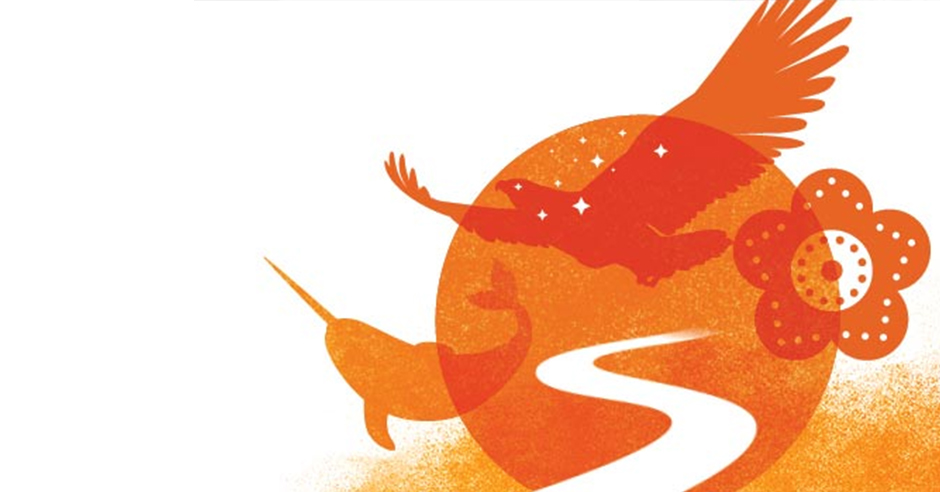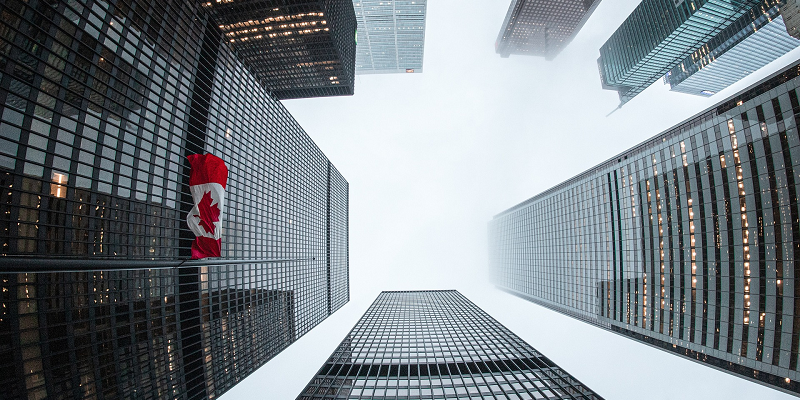SHARE
No Reconciliation without Truth: A Reflection on Canada Day

Since July 1st, 1867, many have commemorated the occasion known as Canada Day to celebrate the birth of a nation. The abundance of natural resources, universal healthcare and education, the opportunities to succeed and thrive are all good reasons to have parades, concerts and festivities.
So Here’s Why We Are Not Celebrating Canada Day 2021
This year on Canada Day 2021, we are choosing to reflect and form an action plan as a group of people working at Tangible Words to do better as individuals - because colonial oppression is not a thing of the past but still an ongoing reality of Indigenous life.
While "Canada" grew and came into an identity as a country of freedom and opportunity, the Indigenous people of this country were facing a tragically different reality.
While we can’t control government response or the past, but we can control what we do as individuals and to what we give our attention, support and money. There's no moral high ground there - just a desire to do better. Because who are we if we do not? Certainly not the people we have been celebrating.
"I am ashamed to say that it literally took 1000 bodies (and the count is still growing) of indigenous children in unmarked graves for us to make an action plan as a company to acknowledge our role in systemic racism in Canada." - Alysha Dominico, CEO & Co-Founder, Tangible Words
What does the Ongoing Colonial Oppression and Forced Assimilation of Indigenous People Look like in Canada in 2021?
In case you feel like “Colonial oppression is not a thing of the past, it is an ongoing process” is a bold claim, here’s what we learned in our mission to “do better” by getting more educated, the first part of our action plan:
- Despite several amendments, the Indian Act of 1867 remains largely the same to this day. (You can read more about the Indian Act here.)
- Under this Act, the Canadian government has absolute control over Indigenous land, their rights, their bodies, culture and even their identities.
- The Indian Act is a known human rights abomination.
- On June 11, 2008, the Canadian government issued a formal apology for the damage done by the “residential school” system, an “educational” scheme designed to “kill the Indian in the child”. And, not much has changed since the apology.
- "Residential schools" need a new name - something more telling of what they actually were: "assimilation camps"?
- An apology is not enough to heal seven generations of cultural genocide, nor the resulting intergenerational trauma. The Canadian government, supported by multiple sects of Christianity, systematically stripped indigenous individuals of their identities and disconnected them from their culture in order to take away their land and resources. 73% of the Indigenous population does not have access to safe, clean drinking water.
- The systemic oppression of Indigenous people in Canada continues - even beyond the last indoctrination camp's closure in 1997. Infrastructure and support for mental health and addictions (e.g. to deal with intergenerational trauma) has so far been insufficient. The crisis of missing and murdered aboriginal women that has devastated Indigenous communities across this country. Suicide rates are three times higher than the rest of the Canadian population.
- The Truth and Reconciliation Commission (TRC) Report commissioned in 2015 outlines 94 Calls to Action. Of these, only ten have been completed. Indigenous people have made their demands very clear...but only the recent discovery of children’s bodies in Cowessess, Kamloops and Lower Kootenay Band prompted collective shock, mourning, soul-searching and outcry from people like us, outside of the immediate indigenous communities.
What Tangible Words Plans To Do Next
It is the luxury of the privileged to be able to forget that which makes us uncomfortable. So we wanted to sit with this discomfort as a team, and make plans to do more than grieve for a loss we have let others sustain. So for us, Canada Day 2021 marks the beginning of an era - to listen and, more importantly, to act.
At Tangible Words, we believe in being conscientious and accountable and in using the power of words to influence actions. We recognize that even as an LGBTIQ+ owned company, we have led privileged lives. So many Indigenous families do not get a chance to choose to grieve over the loss of their families and culture. But we can choose to stand in solidarity and support of them now.
So we'll fly our flag at Half Mast this Canada day and wear orange - because Indigenous people have asked us to and it's in our power to listen and join in collectively mourning the tremendous seven generation loss of life - trauma - inflicted by religion and government that promised them saviours and devastated them instead.
Our Action Plan
1. Education: what does it mean to be an indigenous advocate? We'll be exploring this all year long. Researching and writing this blog post was our first, small step. In writing this article, we had many conversations in our team - which was a tiny win because we had not previously. We helped each other learn about language use. For example, we learned that in Canada, the term "Indigenous" is the most inclusive term. "First Nations" (commonly used in an effort to be politically correct) excludes Métis and Inuit indigenous groups. Later this year, we'll release our diversity and inclusion policies. Here are resources we'll be looking at to learn more this year:
-
- native-land.ca - Understand more about the Indigenous land you live on
- oncanadaproject.ca/settlerstakeaction - Ways Settlers can take action
- 2015 Truth and Reconciliation Final Report.
2. Amplify: sociologist Robin DiAngelo's book WHITE FRAGILITY explains the failing of "White women's tears" - where white people get so upset about the horrors inflicted on people of colour and indigenous that they cry out louder than the people immediately affected by the violence - but in their grand dramatic response, privileged white people are ultimately (again) stealing the story from the survivors. We did not want to do that in our pursuit of solidarity.
So one of the things we debated was what would make a meaningful action plan. We decided that directing the attention away from our efforts and instead highlighting Indigenous voices was a meaningful action to show we are listening to a cause that has been silenced for too long. So we'll be seeking out Indigenous calls to action and striving to lift up Indigenous voices, by pursuing indigenous podcasts and music. This can be a good way to gain insights from Indigenous perspectives and decolonize the way we look at things. Here are some podcasts we're tuning into:
-
- https://www.allmyrelationspodcast.com/
- http://www.metisinspace.com/about - this one is sci-fi related from a decolonial perspective
- https://podcasts.apple.com/ca/podcast/coffee-with-my-ma/id1372866076?mt=2 - stories of Kanien’kehá:ka (Mohawk) resistance over two generations.
3. Give: Donate to Indigenous foundations and organizations. In stark contrast to the Indigenous experience, we have benefited as settlers, so we can at least donate to their organizations and causes. The team found some spots to do that below in our list.
4. Welcome: Earlier this year we launched Tangiblehelp.ca to put our money where our mouths are at Tangible Words. Applications are now open for Indigenous projects. Please pass it on.
5. Advocacy: Use Tangible Words' platform to support Indigenous causes and businesses year-round. We've written this blog, we're wearing orange shirts today and flying the flag at half-mast as asked - but we know it's an effort that should be year-round. So we're developing a social media strategy to feed this thread all year long and continue to do advocacy work on a monthly basis.
Maybe by this time next year, we'll have progress to celebrate. #WearOrangeOnCanadaDay, #SettlersTakeAction and #EveryChild Matters
How you can Help Residential School Survivors
Indian Residential School Survivors Society
Look up the local friendship centre on the land you're on and donate locally: https://www.nafc.ca/en/friendship-centres
https://www.niwrc.org/ - National Indigenous Women's Resource Center
https://www.onwa.ca/ Ontario Native Women’s Association
Topics
- Content Creation (298)
- Growth-Driven Design Websites (167)
- Inbound Marketing (148)
- Sales Growth (133)
- Tangible Words (111)
- Search Engine Optimization (85)
- Social Media Marketing (83)
- Hubspot (80)
- Blogging for Business (75)
- Economic Development (64)
- Events & Training (60)
- Company Growth Podcast (49)
- Manufacturing (47)
- Tourism (46)
- Email Marketing (42)
- Case Stories (40)
- Testimonials & Client Feedback (36)
- Education and SaaS (23)
- Google (21)
- Careers (19)
- Inbound Marketing Agency (19)
- Cool Companies (18)
- FAQ (16)
- Alysha Dominico (13)
- Associations (7)
- Food and Beverage (7)
TW Blog Sign-Up
Learn more about how to grow your business and improve your sales team process.






